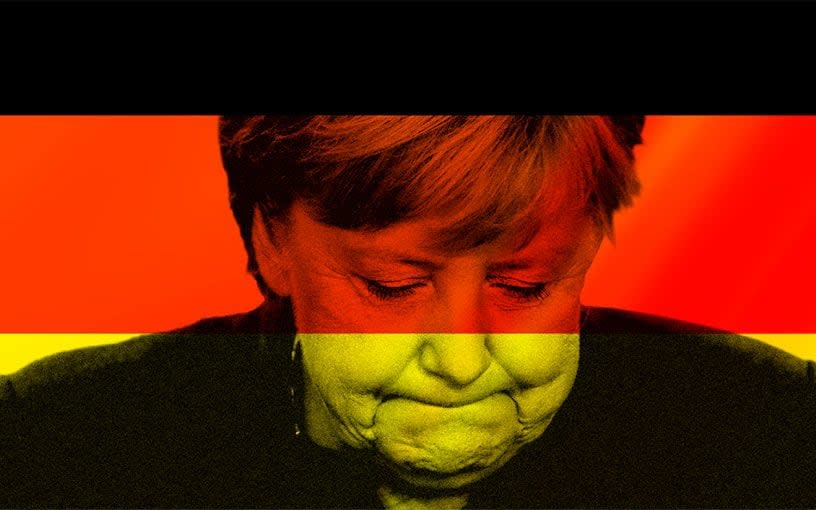‘Worse to come’ as Germany crashes into recession

Germany has crashed into recession after the Covid-19 crisis triggered the biggest slump in Europe’s largest economy since the financial crisis.
The export-led powerhouse suffered a 2.2pc drop in output during the three months to March as the effects of the lockdown hit home, its worst quarter since a 4.7pc decline in early 2009.
Following a marginal 0.1pc slip in the final three months of 2019, Germany has now formally joined eurozone peers Italy and France in recession – defined as two successive quarters of economic contraction.
Germany shut down most of its economy in late March, leading to a near-10pc slump in industrial production as carmakers ground to a halt and supply chains were disrupted.
However, the fall in German growth was much shallower than the 5.8pc slump endured by France and the 4.7pc crash in Italy as those countries went into lockdown earlier and imposed much more stringent measures.
Chancellor Angela Merkel has won praise for the country’s extensive testing regime and well resourced health system, which has kept the number of deaths below 8,000 despite a population of 83m.
The world’s fourth biggest economy began easing restrictions in late April and has also shrugged off years of much-criticised fiscal conservatism by taking on new debt for the first time in seven years with a €750bn (£653bn) rescue package for the economy.
Finance minister Olaf Scholz said this week that the Government will unveil a further stimulus package next month.
The economic damage is nonetheless likely to intensify in the current quarter, with Capital Economics predicting a slump of about 10pc.
Jorg Kramer at Commerzbank said Germany would have to endure a slow recovery. He warned of the impact of social distancing on retailers and reduced incomes, adding: “Companies' debt is rising massively due to corona. After the crisis, companies will pay off these debts and will therefore hold back on hiring and investing.”

Growth across the wider eurozone collapsed by 3.8pc over the first quarter, in line with initial estimates and marking its worst performance since the creation of for the single currency bloc.
The number of jobs across the region also shrank by 0.2pc. This is their first decline since 2013 when the eurozone was still struggling in the wake of the debt crisis.

 Yahoo Finance
Yahoo Finance 